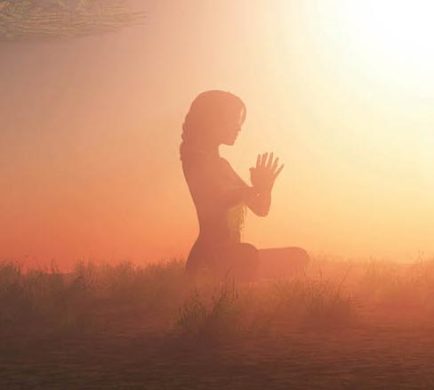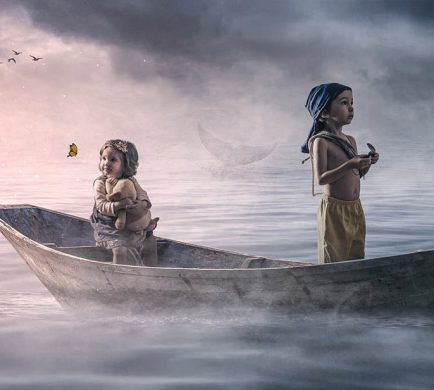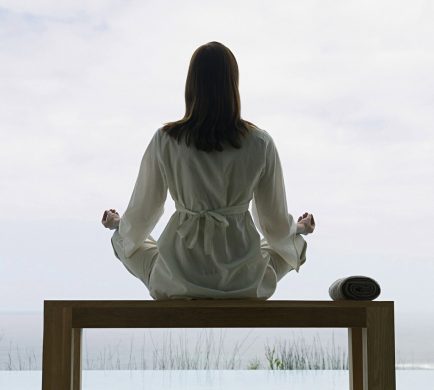By Neal Donald Walsch
The Question
What if the most wonderful ideas you ever had about life were true?
What if the most wonderful ideas you ever had about yourself were true?
What if the most wonderful ideas you ever had about God were true?
What if the most wonderful ideas you ever had about what happens after you die were true?
What would then be true for you?
Do you think there would be any difference between how you might then experience life and how you now experience life?
Your answers to these questions are now setting the course and direction of your experience on Earth, did you know that?
Not to be overly dramatic about it, but it’s true. They are determining the path you will take.
And humanity’s collective answers to these questions are now creating the future of our species by determining the path we will all take.
Will it be the path that our species has taken for thousands of years—the one that got us here, where our lives and the world is today? Is this where we want to be? Is this our most wonderful idea about life? About ourselves? About God?
Ideas are important. It is ideas that create beliefs, beliefs that create behaviors, behaviors that create experience, and experience that creates reality. And if our most wonderful ideas become our beliefs, life on our planet would look much different than it does today.
Cognitive scientists tell us that all it takes is one in ten people to emphatically embrace an idea, and the mass will follow. What, then, could cause just one in ten people to believe that the most wonderful ideas we ever had are true?
A single decision. We’re one decision away. Really. But we must make that decision now. Not doing so is starting to have, on all of us, a very real effect.
The Effect
Let’s not dance around this. We have a big problem here. On Earth, I mean. And it’s touching our lives every day. Individually and collectively.
There’s no reason to move into a dark or depressed state over this though, because the solution really is just one decision away. And it’s not even a difficult decision to make. We just have to choose to make it.
Many people agree with the decision intuitively already. They simply haven’t implemented it in their lives as a practical matter, probably because they’re waiting to see if anyone else agrees. But the time for waiting is over.
The problem now confronting us is becoming pervasive. It’s evidenced not only in the world’s governments or the world’s corporations or the world’s social or religious institutions. It’s affecting all of us. In individual homes all across the planet, we’re feeling the effect.
So what’s up? What’s the problem? Let’s lay it out in direct terms.
Humanity’s biggest problem is that humanity doesn’t know what humanity’s biggest problem is.
We can see the effect of this problem all around us, but we don’t seem to see the cause.
Now you have a real problem when you know you have a problem, but don’t understand what the problem is. You don’t know what’s causing the effect that you’re observing every day. And humanity’s confusion about this has gone on for so long that it’s now created a condition. A condition that’s threatening to become permanent.
Here’s one way that it shows up: Perhaps more than ever in recent times, we’re hearing folks say that if we do have a problem right now, it’s only because of “those others” who are creating problems. We didn’t have these problems
before, these folks say, and we want to go back to the Good Old Days.
And just who, exactly, are those “others” to whom these folks are referring?
It’s those unwanted immigrants, those unsatisfied minorities, those unhappy women, those right-wing radicals, those left-wing nut jobs, those unacceptable gays, those uninformed students, those dumb conservatives, those empty-headed liberals, those unmotivated government assistance recipients. It’s those “others” who just keep making things difficult. A well-known political strategist in the United States, Brad Todd, crystalized all of this in a tweet he posted in mid-2018: “Is the American Left willing to live with and among the American Right? Or are we at culture rupture?” And the phenomenon is not limited to the U.S., but is emerging all over the world. Newspaper columnist Paul Krugman put it this way in an opinion piece in the New York Times written at about the same time. “The real crisis is an upsurge in hatred—unreasoning hatred that bears no relationship to anything the victims have done.”
I resonate with the urgency of Mr. Todd’s questions and I concur with Mr. Krugman’s observations. Suddenly it feels as if we live in a world of us vs. them. People around the globe are lining up on one side or the other, and the middle ground seems to be disappearing.
Not everyone may feel this way, but everyone can feel everyone who feels this way. So it’s affecting all of us. Each day it’s producing distressing headlines, angry blogs, name-calling speeches, childish rants in tweets, bullying diatribes, finger-pointing tirades, and violence-laden outbursts.
And while we may not know the underlying cause of the problem human society is now facing, the cumulative impact of that problem can be put into a single word. Alienation.
We are seeing it more and more. It is an outgrowth of a very contentious and unhappy situation.
The Situation
Alienation inevitably arises in the aftermath of ongoing citizen frustration. Citizen frustration inevitably arises in the aftermath of ongoing societal dysfunction. Societal dysfunction inevitably arises in the aftermath of ongoing systemic failure. And that’s exactly what we’ve had here. Long-term, ongoing, systemic failure.
We’ve put into place on our planet a wide assortment of systems created to make life better for all of us. Those systems are not working. There are some rare exceptions, but in the main, most are failing to produce the outcomes they were intended to produce.
Wait. It’s worse. They’re actually producing the opposite. Our political systems—created to produce safety and security for the world’s nations and their people—have in the main produced far too much of exactly the opposite: ongoing disagreements, endless “make wrong,” dangerous trade wars, nerve-wracking military threats, and ongoing violence between people at every level.
Our economic systems—created to produce opportunity and sufficiency for all—have in the main produced far too much of exactly the opposite: massive economic inequality and increasing poverty, with a handful of people (actually less than ten) holding more wealth and resources than 3.5 billion (that’s half the planet’s population) combined.
Our social systems—created to advance and facilitate the joy of living in community and build a foundation for harmony among a divergent population—have in the main produced far too much of exactly the opposite: discordance, disparity, prejudice, and despair…with limited opportunity for upward mobility and in far too many cases rampant injustice producing exasperation and outrage.
(Even our vaunted online internet systems—created as the newest innovation of our social systems and originally designed to bring us closer together through the “marvel” of social media—have in the main produced far too much of exactly the opposite: a playing of one against another through the manipulation of emotions, a heightening of our differences, an exacerbation of our fears, and a poisoning of our minds with negativity, all of which has not brought us closer together, but driven us further apart.)
And saddest of all, our spiritual systems—created to inspire a greater love of God, and so, of each other—have in the main produced far too much of exactly the opposite: bitter righteousness, shocking intolerance, widespread anger, deep-seated hatred, and self-justified violence. Now you may think that I have exaggerated the impact of all this. Things are better here on Earth now than ever before, right? Well, I suppose that’s true for some, but do you know that on this day over 1.7 billion people will have no access to clean water? Do you know that 1.6 billion will live without electricity? Do you know that, difficult as it may be to believe, 2.5 billion people—over a quarter of this planet’s population—will not have toilets to use in this, the first quarter of the 21st Century?
These are more than simple inconveniences. The health hazards caused by such conditions leads to thousands of unnecessary deaths each year. And speaking of unnecessary deaths, consider this statistic: Over 650 children die every hour on this planet of starvation.
Every hour.
Starvation? Really? While we throw away more food in restaurants from Tokyo to Paris to Los Angeles each evening than would be needed to feed the children of an entire outlying Third World village for a week?
Even a quick overview of such numbers—even the most dispassionate glance—surely provides dismaying evidence of our absolute, complete, and utter lack of grasping (much less activating) the simplest and most basic answers to the simplest and most basic questions that members of any sentient species would (one would think) sooner or later have to ask: Who are we? Who do we choose to be as a species?
What gives here? What’s going on with the human race that it cannot see itself even as it looks at itself? Where is humanity’s blind spot? What is the reason for all this?







